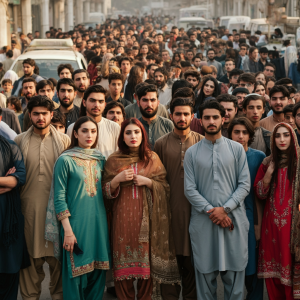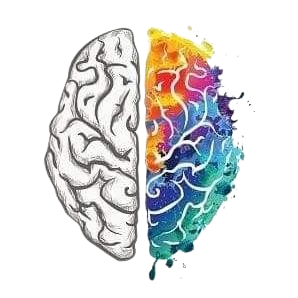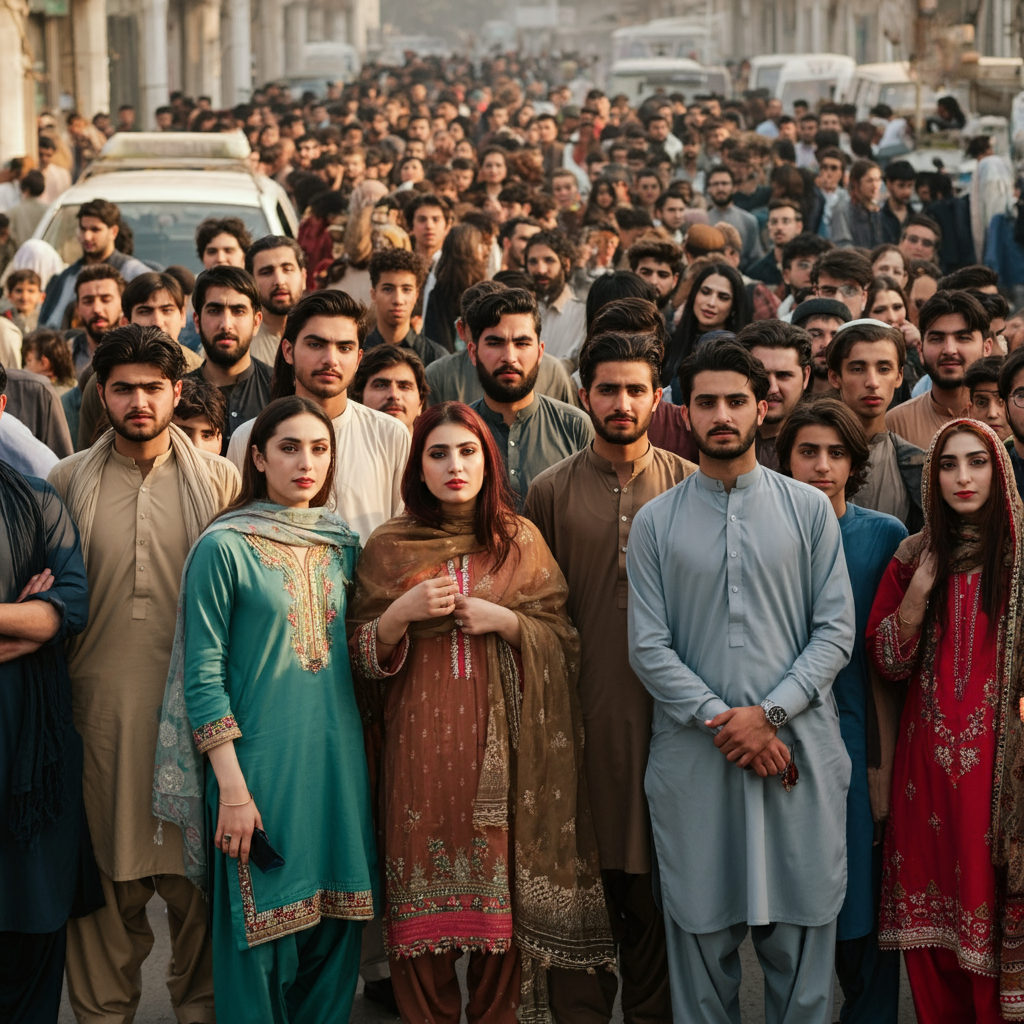Beyond the Binary: Mental Health in Pakistan’s Transgender Communities

Beyond the Binary
In the heart of a society where tradition and conformity often reign supreme, a silent struggle unfolds. Imagine a young person born into a body that doesn’t reflect their true self, navigating a world that refuses to see them. They face rejection, discrimination, and a profound sense of isolation. This is the reality for countless transgender individuals in Pakistan, where the weight of societal expectations can crush the spirit.
Studies reveal a heartbreaking truth: transgender people in Pakistan are disproportionately affected by mental health issues. Depression, anxiety, and even suicidal thoughts cast a dark shadow over their lives. But why? What are the unique challenges they face, and how can we, as a society, offer support and understanding?
This blog delves into the complexities of transgender mental health in Pakistan. We will explore the cultural and social barriers that hinder their well-being and illuminate the path toward a more inclusive and compassionate future. Join us as we journey beyond the binary, seeking to understand, empathize, and empower.
Understanding the Transgender Experience in Pakistan
In the tapestry of human identity, gender is not always a simple binary. Transgender individuals, often referred to as “Khwaja Sira” in Pakistan, are those whose gender identity differs from the sex assigned to them at birth. This identity is not a choice but a deeply felt sense of self that can manifest in various ways. Some may identify as the opposite gender, while others may feel they exist somewhere along a spectrum or beyond the traditional male-female categories altogether.
Historically, transgender communities in Pakistan have a complex and nuanced presence. The Khwaja Sira community, for instance, traces its roots back centuries, with roles in Mughal courts and Sufi traditions. These communities often held unique social positions, sometimes revered and marginalized, reflecting the shifting cultural landscape.
In contemporary Pakistan, however, transgender individuals grapple with significant challenges. The dominant cultural narrative, rooted in conservative interpretations of religion and tradition, often struggles to accommodate those who defy gender norms. This lack of understanding can lead to stigma, discrimination, and even violence against transgender people.
It’s essential to recognize that the transgender experience is not monolithic. Each individual’s journey is shaped by a unique intersection of factors, including their family, community, and personal beliefs. Some may find acceptance and support within their families or communities, while others face rejection and isolation.
Understanding the diversity and complexity of transgender identities is crucial to fostering a more inclusive society. It’s about moving beyond stereotypes and seeing each person as unique with their dreams, aspirations, and struggles. By recognizing the historical and cultural context of transgender communities in Pakistan, we can gain a deeper appreciation for their resilience and strength in the face of adversity.
Mental Health Challenges Faced by Transgender Individuals
The emotional toll of living as a transgender person in Pakistan is immense. Research paints a stark picture of the mental health challenges they confront. Studies suggest that transgender individuals experience significantly higher rates of depression, anxiety, and post-traumatic stress disorder (PTSD) compared to the general population.
Discrimination, both overt and subtle, chips away at their self-worth and sense of belonging. From casual insults to outright violence, transgender people navigate a world where their very existence is often questioned or condemned. This constant barrage of negativity can leave deep emotional scars, leading to feelings of hopelessness and despair.
Stigma, deeply ingrained in societal attitudes, casts a long shadow. Transgender individuals may be ostracized by their families, shunned by their communities, and denied opportunities in education and employment. This social exclusion creates a profound sense of isolation, further exacerbating mental health struggles.
The fear of being “outed” or exposed can also take a toll. Many transgender people live in secrecy, hiding their true selves to avoid rejection or harm. This constant vigilance and the need to present a facade can be emotionally exhausting, contributing to anxiety and chronic stress.
Moreover, the lack of access to gender-affirming healthcare can create a profound sense of dysphoria – the distress caused by a mismatch between one’s gender identity and one’s physical body. This can lead to depression, anxiety, and even self-harm.
It’s important to remember that these mental health challenges are not inherent to being transgender. They result from living in a society that often fails to recognize and respect their identities. By addressing the root causes of discrimination and stigma, we can create a more supportive environment where transgender individuals can thrive and live fulfilling lives.
Cultural and Social Factors Impacting Mental Health
In Pakistan, the intricate interplay of cultural norms and societal expectations creates a unique set of challenges for transgender individuals, profoundly impacting their mental well-being. Traditional gender roles, deeply ingrained in the cultural fabric, often dictate how individuals should behave and identify. These expectations can be particularly oppressive for transgender people, who defy the binary categories of male and female.
Moreover, conservative interpretations of religion, prevalent in many parts of Pakistan, can further stigmatize transgender identities. Some religious leaders and communities may view transgender people as violating divine will or as morally deviant. This can create a climate of fear and shame, where transgender individuals feel judged and condemned.
Societal prejudices and discrimination also contribute to the mental health challenges faced by transgender people. They may be denied access to education, employment, and healthcare. They may also experience harassment and violence in public spaces. This constant marginalization can take a heavy toll on their mental health, leading to feelings of worthlessness and despair.
Furthermore, the lack of legal recognition and protection for transgender rights can leave them vulnerable to exploitation and abuse. While the Transgender Persons (Protection of Rights) Act of 2018 was a step forward, implementation remains challenging. This lack of legal protection can exacerbate the mental health struggles of transgender individuals, as they may fear for their safety and well-being.
Family Rejection and Social Isolation
Family often considered the bedrock of support, can become a source of profound pain for transgender people. In a society where traditional gender roles are deeply ingrained, coming out as transgender can lead to rejection, shame, and even expulsion from the family unit. This loss of love and support can be devastating, leaving individuals isolated and alone.
Religious Conservatism and Stigma
Religious beliefs and interpretations can also contribute to the stigmatization of transgender individuals. Some religious leaders and communities may view transgender identity as a violation of divine will or a moral transgression. This can create a climate of fear and shame where transgender people feel judged and condemned.
Societal Prejudice and Discrimination
Beyond the family and religious spheres, transgender individuals face prejudice and discrimination in various aspects of life. They may be denied access to education, employment, and healthcare. They may also experience harassment and violence in public spaces. This constant marginalization takes a heavy toll on their mental health, leading to feelings of worthlessness and despair.
Lack of Legal Recognition and Protection
The legal landscape in Pakistan offers limited protection for transgender rights. While the Transgender Persons (Protection of Rights) Act of 2018 was a step forward, implementation remains challenging. This lack of legal recognition and protection leaves transgender individuals vulnerable to exploitation and abuse, further compounding their mental health struggles.
Internalized Transphobia
The pervasive negative messages about transgender identity can lead to internalized transphobia, where individuals internalize societal prejudices and develop a negative self-image. This can manifest as self-doubt, shame, and a sense of unworthiness, contributing to depression and anxiety.
It’s important to understand that these cultural and social factors are interconnected and mutually reinforcing. They create a complex web of challenges that can trap transgender individuals in a cycle of isolation, discrimination, and mental distress. Breaking this cycle requires a multi-faceted approach addressing individual and systemic barriers to well-being.
Barriers to Accessing Mental Healthcare
For transgender individuals in Pakistan, seeking mental healthcare can be a daunting journey, fraught with obstacles that hinder their access to the support they desperately need. The path is often riddled with challenges that can make it difficult for transgender individuals to receive the care they need. These challenges can include:
Scarcity of Culturally Sensitive and Transgender-Affirming Services
One of the most significant barriers is the lack of mental health services that are both culturally sensitive and transgender-affirming. Many therapists and counselors may not have the training or understanding necessary to address the unique needs and experiences of transgender individuals. This can lead to misdiagnosis, inappropriate treatment, or even outright rejection, further alienating those seeking help.
Financial Constraints
Financial constraints also pose a significant challenge. Mental healthcare, especially specialized services, can be expensive. For transgender individuals who often face discrimination in employment and housing, affording therapy or counseling may be out of reach.
Social Stigma and Fear of Exposure
The pervasive stigma surrounding mental health issues in Pakistan can be particularly acute for transgender individuals. Seeking help may be seen as a sign of weakness or a confirmation of the negative stereotypes they face. The fear of being “outed” or exposed as transgender can also prevent individuals from seeking support, as they may fear rejection from their families or communities.
Consider the story of Ayesha, a young transgender woman struggling with depression and anxiety. She longs to seek help but worries about finding a therapist who understands her unique challenges. She’s also afraid of being judged or discriminated against by healthcare providers. The financial burden of therapy adds another layer of concern, making her feel trapped and hopeless.
These barriers can create a vicious cycle where mental health issues go untreated, leading to further distress and isolation. Recognizing that these challenges are systemic and require a concerted effort is essential. By increasing the availability of culturally sensitive and transgender-affirming mental healthcare, reducing financial barriers, and challenging the stigma surrounding mental health, we can create a more supportive environment where transgender individuals feel empowered to seek the help they need and deserve.
Empowerment and Resilience: Triumph Over Adversity
Amidst the challenges, the transgender community in Pakistan demonstrates remarkable strength and resilience. They refuse to be defined solely by their struggles, instead choosing to celebrate their identities and fight for their rights. Their courage and determination are a beacon of hope, inspiring others to embrace their authentic selves and challenge societal norms.
The Power of Community
Community plays a vital role in fostering resilience among transgender individuals. Support groups and networks provide safe spaces to connect with others who share their experiences, fostering a sense of belonging and mutual understanding. These communities offer a lifeline, providing emotional support, practical advice, and a platform for advocacy.
Advocacy and Activism
Transgender activists and organizations are at the forefront of the fight for equality and acceptance. They tirelessly advocate for policy changes, legal recognition, and access to essential services. Their efforts are crucial in raising awareness, challenging stigma, and creating a more inclusive society.
Self-Care and Well-being
Self-care is essential for maintaining mental well-being in the face of adversity. Transgender individuals are learning to prioritize their mental health, engaging in activities that bring them joy and peace. This can include meditation, yoga, creative expression, or simply spending time in nature.
Inspiring Role Models
The transgender community in Pakistan boasts several inspiring role models who have broken barriers and achieved success in various fields. Kami Sid, a talented fashion designer, has challenged stereotypes and created a space for transgender individuals in the fashion industry. Marviya Malik, a journalist and anchor, has become a powerful voice for the community, speaking out against discrimination and injustice.
Other notable figures include:
- Nisha Rao is a lawyer and activist fighting for legal recognition and protection of transgender rights.
- Aisha Mughal is a social worker and advocate who works to empower transgender individuals through education and skills training.
- Jannat Ali and Rimal Ali are transgender models challenging beauty standards and redefining fashion.
- Nadeem Kashish is a well-known transgender politician, an activist for trans individuals and communities, and a radio show host.
- Shyraa Roy is a Dubai-based singer, actress, and producer known for playing Sania in Aks, Mohini in Mohenjodaro, and Natasha in Saaho in cameo roles.
These individuals, and countless others like them, serve as a source of inspiration and hope for the transgender community. They demonstrate that despite the challenges, living authentically and achieving success is possible. Their stories remind us that resilience is about overcoming adversity, celebrating identity, and embracing the power within.
By fostering community support, promoting advocacy, and prioritizing self-care, transgender individuals in Pakistan are building a brighter future for themselves and generations to come. Their resilience is a testament to the human spirit’s ability to thrive despite adversity. As a society, it’s our responsibility to stand with them, to challenge discrimination, and to create a world where everyone, regardless of their gender identity, can live with dignity and respect.
The Role of Allies and Mental Health Professionals: Building Bridges of Understanding
Creating a society where transgender individuals feel safe, accepted, and empowered requires the active participation of allies and mental health professionals. Allies can play a crucial role in challenging stigma, advocating for transgender rights, and providing support to those who need it. By educating themselves about transgender experiences and actively promoting inclusivity, allies can help create a more welcoming and supportive environment.
Mental health professionals have a unique responsibility to provide culturally competent and transgender-affirming care. This involves understanding the specific challenges faced by transgender individuals in Pakistan, including the impact of discrimination, stigma, and cultural expectations. It also means creating a safe and non-judgmental space where clients feel comfortable expressing their true selves.
By working together, allies and mental health professionals can build bridges of understanding and support, fostering an environment where transgender individuals can thrive and achieve their full potential.
Allies can also help to break down stereotypes and challenge negative perceptions about transgender people. By speaking out against discrimination and advocating for transgender rights, allies can contribute to a more inclusive and equitable society. Additionally, allies can provide emotional support and companionship to transgender individuals, helping them to feel less isolated and alone.
Mental health professionals can also play a vital role in addressing the specific needs of transgender individuals. This may involve providing therapy, counseling, or other forms of mental health support. It may also include advocating for policy changes that improve the lives of transgender people. By working together, allies and mental health professionals can create a more supportive and inclusive environment for transgender individuals in Pakistan.
Call to Action: A Collective Responsibility
The mental well-being of transgender communities in Pakistan is a collective responsibility. It’s time to move beyond the binary and embrace the diversity of human experience. We urge policymakers to enact and implement laws that protect transgender rights, ensuring access to healthcare, education, and employment. We encourage mental health professionals to seek training in culturally competent and transgender-affirming care. We call upon every individual to challenge stigma, promote understanding, and create a society where everyone feels safe and valued.
Let’s work together to build a Pakistan where transgender individuals can live authentically, free from fear and discrimination. The journey towards a more inclusive and compassionate future begins with each of us.
Conclusion: Beyond the Binary, Towards a Brighter Future
The journey through the complexities of transgender mental health in Pakistan has revealed both challenges and triumphs. We’ve witnessed a community’s resilience in facing discrimination and stigma and the power of solidarity and self-care in fostering well-being. It’s clear that there’s a long road ahead, but the seeds of change have been sown.
As a society, we must continue pushing beyond the binary’s confines, embracing the full spectrum of human identity. By challenging prejudice, advocating for rights, and providing culturally sensitive support, we can create a Pakistan where transgender individuals not only survive but thrive.
Let us all commit to building a future where every person, regardless of their gender identity, feels seen, heard, and valued. Let’s move forward together towards a more inclusive and compassionate Pakistan. The journey beyond the binary is a journey towards a brighter future for all.
References:
Mental health challenges faced by transgender community in Pakistan: A systematic review: https://www.ncbi.nlm.nih.gov/pmc/articles/PMC9377189/
Pakistan: Transgender Persons (Protection of Rights) Act, 2018 – International Commission of Jurists: https://www.icj.org/wp-content/uploads/2020/03/Pakistan-Transgender-Advocacy-Analysis-brief-2020-ENG.pdf
Raising the alarm: Mental health status of the transgender community in Pakistan: https://pubmed.ncbi.nlm.nih.gov/36493687/
Silent no More: Transgender community in Pakistan: A research Study – Aurat Foundation: https://af.org.pk/gep/images/GEP%20Gender%20Studies/Transgender%20Community%20in%20Pakistan.pdf
Transgender Persons (Protection of Rights) Act, 2018: https://www.na.gov.pk/uploads/documents/1526547582_234.pdf


